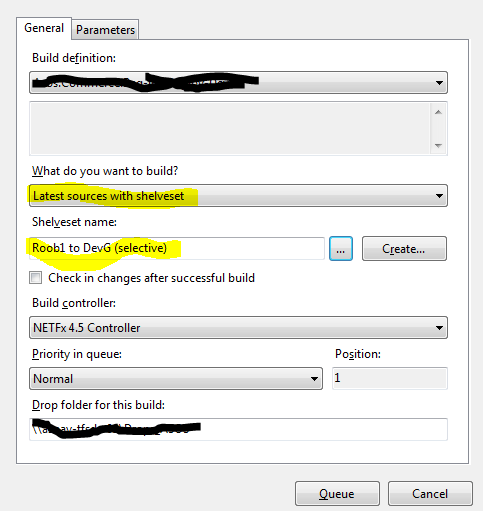TFS and integration test builds from Shelvesets.

Our team have been involved in a fair bit of release activity, as of late. We are gearing up for our wagile (our previous CTO's term not mine) project's big bang release to production. Due to the release pipeline we have been forced to release our changes with another team. The code resides in 2 different branches, both of which are branched off of a main branch. However, in TFS terms, these are unrelated until at least one merge has taken place (a baseless merge). Quite simply we have the following arrangement: a (main) b (us) c (them) It was decided that we should merge our changes in (b) into their changes in (c) and then use the build resulting from the merge to push out to an integration environment, where our testers would run any remaining manual tests (or kick off any semi automated service/integration tests) Forgetting the fact this would actually be a baseless merge in the first instance, actually performing the merge and getting it out, would